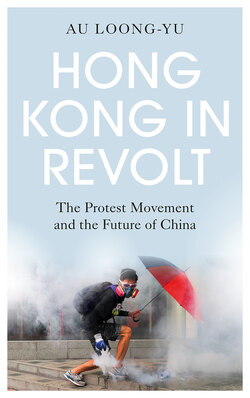Читать книгу Hong Kong in Revolt - Au Loong-Yu - Страница 10
На сайте Литреса книга снята с продажи.
One Country, Two Capitalist Systems
ОглавлениеHong Kong was once described as China’s golden-egg-laying goose. When Deng Xiaoping met Margaret Thatcher in 1984 for the signing of the Sino-British Joint Declaration, which outlined the conditions of Hong Kong’s handover to China, he said that Hong Kong’s capitalist system would be preserved for fifty years because, with the help of Hong Kong, ‘China hoped to approach the economic level of advanced countries by the end of that time’.2
The Joint Declaration was first and foremost a trade-off between the two countries: in exchange for the UK giving up Hong Kong to China, the UK (and the West in general) insisted that Hong Kong would continue to be treated as a separate customs territory in relation to China, and that under the ‘one country, two systems’ principle Western economic interests in Hong Kong would also be fully protected. Beijing’s plan, on the other hand, was to strike a compromise for the moment but stage a counter-attack later.
Beijing has always insisted that mainland China remains ‘socialist’, while only Hong Kong is ‘capitalist’. In essence, both are capitalist, although in ways that are quite different from each other. The former is a kind of state capitalism, while the latter is a form of laissez-faire capitalism. The two capitalisms complimented each other for a while: while state capitalism protected China from predatorial global capitalism, Hong Kong’s free port status allowed China’s capitalism to ‘walk on two legs’ and gave Beijing a ‘window’ to the global market. With the help of Hong Kong (and Taiwan), Beijing has been hugely successful in engineering China’s rise. Yet the asymmetry in size between the two sides determined that Hong Kong would gradually be integrated into ‘Greater China’. Since the turn of the twenty-first century, China’s supporters have been telling us that Hong Kong’s importance to Beijing has been diminishing. This has the appearance of being true. Whereas in 1983 Hong Kong’s GDP was 13.1 percent of China’s, in 2013 it had fallen to 3 percent.3 In light of this, Beijing’s supporters have concluded that Hong Kong’s usefulness to China is finished, and that the ‘Hong Kong goose’ should behave itself. Gradually Beijing began to impose an ever more hard-line policy in Hong Kong. It wants to keep Hong Kong’s capitalism but not its autonomy and its political liberties.
That is why, when Beijing designed the Basic Law in 1990, it included Article 23 on national security, which aims at restricting the city’s political liberties and requires the HKSAR (Hong Kong Special Administrative Region) government to enact local laws accordingly. In 2003, Beijing tried to push through a bill on Article 23 (whose purpose was to ‘prohibit any act of treason, secession, sedition, or subversion against the Central People’s Government, and to prohibit local organisations from establishing ties with foreign political organisations’), but was defeated by a big protest in which 500,000 people took to the streets.
The Basic Law did vaguely promise that universal suffrage would be implemented step by step after 1997, but with no explicit timeline. Furthermore, it only stipulated the arrangements for the elections of both the chief executive (CE) and the Legislative Council (LegCo) in the first ten years after the handover. Hence, after 2007, the arrangements for the CE and LegCo ‘elections’ have had to be promulgated by Beijing anew.
The local liberals (not to be confused with the Liberal Party, a business-class party), also known as the ‘pan-democrats’, have benefited from this partial form of direct election. Their agenda has always been to work within the constraints of the Basic Law to achieve the expansion of direct elections. We shall see how the liberals’ plan has been shattered to pieces since 2012, when Xi Jinping took power in China.
